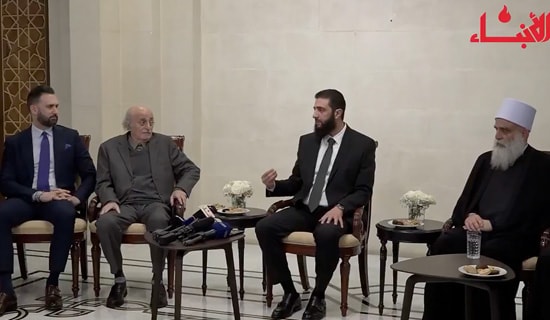
Following are excerpts from a TV debate on women driving in Saudi Arabia which aired on Decision Makers TV on October 21, 2013:
Interviewer: What made you drive a car in Saudi Arabia on several occasions? Was it part of the October 26 women driving campaign, or was it because of a personal need?
Saudi social activist, Lamia Bukhari: Good evening. I drove my car because I needed to. I support the campaign, but I drove because I needed to.
Interviewer: What were the circumstances that led you to drive several times?
Lamia Bukhari: I moved from Jedda to the Eastern Province. My family and friends are in Jedda, so I often go there. I didn't have a car or a driver, so I was dependent on taxis.
[...]
Once, I wasn't feeling well, so I asked the driver to slow down. He was driving like a madman. I asked him to slow down, and answered: "I am not your father's servant." That is what he said to me. Then he stepped on the gas so hard that we almost crashed into the car ahead, at a red light. So when he stopped, I opened the door and got out. I gave him money and waked away, without even waiting for my change, even though he hadn't taken me to my destination. He drove away. It didn't make any difference to him, of course. I stood there for 40 minutes.
Interviewer: Waiting for another taxi?
Lamia Bukhari: I called everybody, but they were all busy. Finally, I called someone – I won't mention his name – who came to pick me up. I told myself that this was the last time I would be in such a situation. There I was, standing on the pavement. There were thousands of cars around me, but nobody paid me any attention. The sun was beating down on me. It was hot, and I was sweating. I could no longer tell if it was sweat or tears on my face. You know, I can't even describe how I felt. I am fifty years old. How could I find myself in such a humiliating situation? I could not accept this, and I swore that this would never happen again.
[...]
Professor Muhammad Nujaimi, Institute of Higher Judiciary, Riyadh: There are 600,000 women in the work force, but only 9,000 want to drive. Look how these 9,000 control the 600,000! The show's report claimed that 600,000 women are awaiting this. Absolutely not! Allowing women to drive would have several consequences. Firs of all, most women in Saudi Arabia, who oppose this, would be offended. Secondly, it would be economically, socially, and politically harmful. Even the timing [of the campaign], scheduled for October 26, is strange. It comes at a time of political turmoil in the region, with crises in Syria, Iraq, Lebanon, Egypt, and Yemen.
[...]
Lamia Bukhari: First of all, we say loud and clear that driving is a matter of choice. We are not forcing anybody to drive. Who says that we are imposing our opinion on them? Oh respected sheik, tell all those people who oppose women driving that just as they do not want us to impose our opinion upon them, they should not impose their views on us. I need to drive, and I don't feel like telling you my life story in order to persuade you. I have a male-guardian, who knows the circumstances of my life, and he can decide on this, but you people will not impose your views upon me. You are saying that we are a minority? Fine. The rights of minorities are preserved all over the world. The world makes such a big deal of human rights for the sake of minority rights. You'd better not call us "a minority," because the minorities rule the world.
[...]














